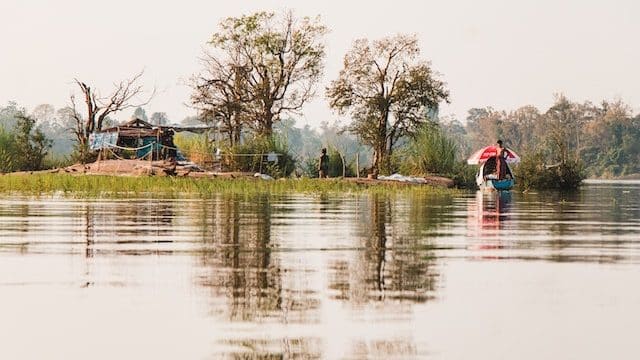
(UCAN): Environment experts in Vietnam have warned against the negative impacts of a large-scale canal infrastructure project planned by neighbouring Cambodia along the Mekong River.
Le Anh Tuan from the Institute of Climate Change Research at Can Tho University noted that the 180-kilometre project, which ends in the coastal Cambodian province of Kep, near the border with Vietnam, will lead to a 50 per cent decrease in water flow to Vietnam’s southern regions in the Mekong Delta.
Over half of the cultivated area in the Mekong Delta could be subject to saltwater intrusion during the dry season and the high tide period, online vnexpress quoted Tuan as saying.
On April 2, Cambodia announced plans to construct the Funan Techo Canal, which would link the capital, Phnom Penh, with the coastal province of Kep and facilitate the seamless movement of goods and services across the country.
Once completed, the first capital-to-coastal waterway will pass through key regions like Kadal, Takeo, and Kampot, to ensure Cambodia emerges as an economic hub in Southeast Asia.
When the canal is operational, the Mekong Delta will suffer a severe shortage of fresh water, and farming and the ecosystem will be disrupted
Le Anh Tuan
“When the canal is operational, the Mekong Delta will suffer a severe shortage of fresh water, and farming and the ecosystem will be disrupted,” Le told a consultation workshop on April 23 in Can Tho, organised by the Vietnam National Mekong Committee.
He said the US$1.7 billion canal project, which includes roads on both sides, will affect the biodiversity in Vietnam’s largest delta.
The 40,000 square metre Mekong Delta in southern Vietnam is home to more than 17.4 million people. It accounts for 50 percent of the country’s rice production and 65 percent of aquaculture and contributes 17 percent of the communist nation’s GDP.
The Mekong River, the longest in Southeast Asia, flows through China, Myanmar, Thailand, Laos, Cambodia and Vietnam.
Le, a Vietnam Mekong River Commission member, warned that freshwater shortage will affect dozens of projects in the Mekong Delta.
We will convey our opinions to the International Mekong River Commission and Cambodia so that the project can soon have a cross-border environmental impact assessment
Nguyen Thi Thu Linh
As a result, local people will fall on hard times, leading to large-scale migration, he warned.
Le urged Cambodia to “temporarily halt the project and engage in further research and dialogue.”
Speaking at the workshop, Nguyen Thi Thu Linh, head of the standing office of the Vietnam Mekong Committee, requested Cambodia to share information about the project’s design and operation.
“We will convey our opinions to the International Mekong River Commission and Cambodia so that the project can soon have a cross-border environmental impact assessment,” Nguyen said.
The canal project is being developed by the China Road and Bridge Corporation under a build-operate-transfer arrangement. Work is expected to start in the fourth quarter of this year and end in 2028.
The canal project is expected to boost China’s Belt and Road Initiative (BRI) to enhance regional connectivity.
On April 11, Doan Khac Viet, a spokesperson for the Vietnam foreign ministry, urged Cambodia to conduct an assessment study on the project’s potential impact.
However, So Naro, Cambodia’s minister delegate attached to the prime minister and who looks after ASEAN affairs, said Cambodia was not legally bound to submit documents to the Vietnamese government.
Naro said the documents and reports have been submitted to the Mekong River Commission, and Vietnam can access them.










